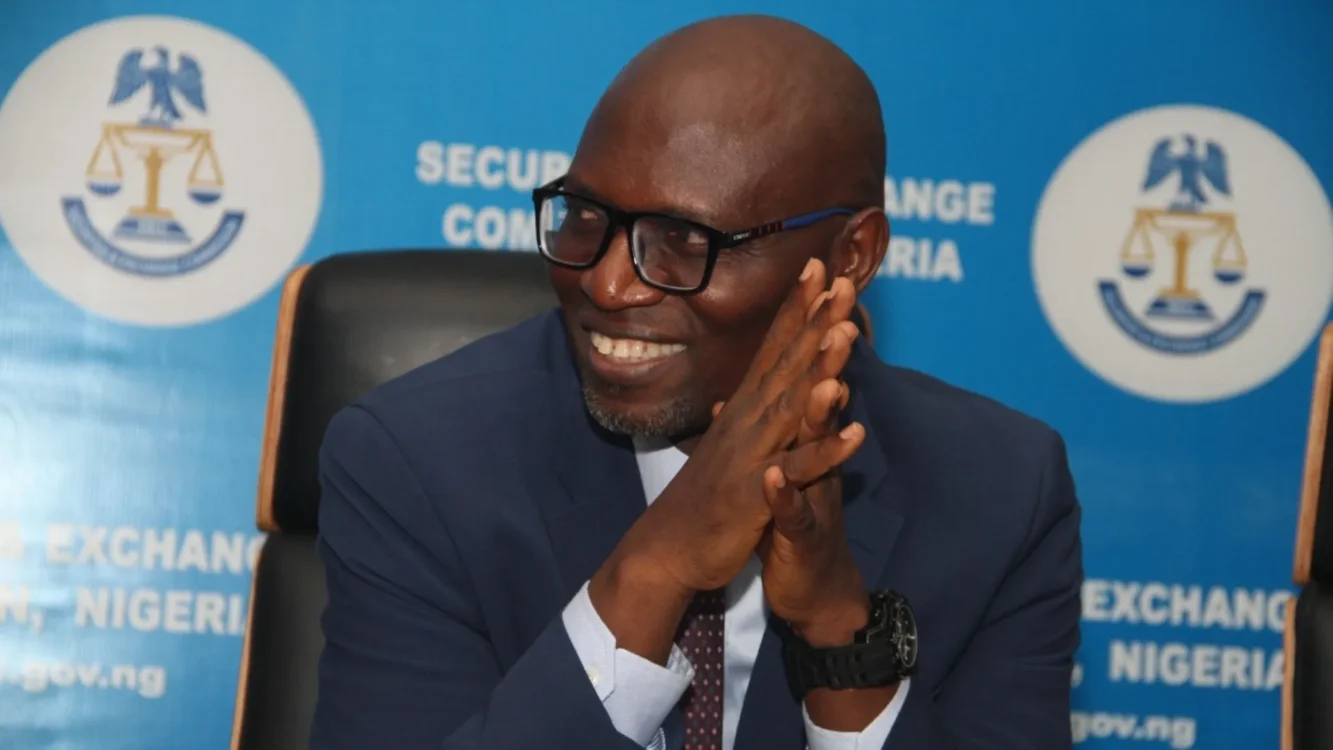
The Securities and Exchange Commission (SEC) has officially commenced the implementation of the newly enacted Investments and Securities Act, 2025 (ISA 2025), following its recent signing into law by President Bola Tinubu.
This legislation repeals the 2007 version of the Act and ushers in significant reforms aimed at modernising Nigeria’s capital market.
A key change under ISA 2025 is the formal regulation of digital asset exchanges and online foreign exchange trading platforms. The SEC has now made it illegal for any entity to operate in these spaces without proper registration. The commission urged stakeholders to familiarise themselves with the new rules and warned that unregistered operators risk facing sanctions.
With broader regulatory powers under Section 3(3) (b) of the new Act, the SEC is now authorised to register and supervise securities exchanges, commodity exchanges, digital and virtual asset exchanges, and other market venues.
According to Dr. Emomotimi Agama, Director-General of SEC, the Act marks a turning point in Nigeria’s drive to make its capital market more inclusive, transparent, and globally competitive. He emphasised that while innovation is welcome, it must take place within a regulated environment that protects investors.
The Act notably expands the definition of securities to include virtual and digital assets, as well as investment contracts. It also brings Virtual Asset Service Providers (VASPs), Digital Asset Operators (DAOPs), and Digital Asset Exchanges under the SEC’s purview. New frameworks for commodities exchanges and warehouse receipts are introduced, aimed at developing the full value chain of Nigeria’s commodities ecosystem.
For sub-national governments and agencies, ISA 2025 removes certain barriers that previously restricted them from raising funds via the capital market, thereby enhancing their financing options. To boost transparency, the Act mandates the use of Legal Entity Identifiers (LEIs) in securities transactions.
In terms of investor protection, the law explicitly bans Ponzi schemes and prescribes strict penalties for violators. It also strengthens the capacity of the Investments and Securities Tribunal (IST) by refining provisions around its composition and jurisdiction.
Furthermore, ISA 2025 introduces a broader classification of securities exchanges—differentiating between composite exchanges, which can list multiple types of securities, and non-composite exchanges, which are limited to specific instruments. Provisions for financial market infrastructure, including central counterparties, clearing houses, and trade depositories, are now clearly defined. The Act also shields transactions processed through these infrastructures from general insolvency laws, ensuring greater stability.
New systemic risk provisions empower the SEC to monitor and mitigate risks that could affect the broader financial system, aligning Nigeria more closely with international best practices. With these developments, Nigeria remains a ‘Signatory A’ to the International Organisation of Securities Commission’s (IOSCO) Enhanced Multilateral Memorandum of Understanding, a status that boosts its global investment appeal.
Experts and stakeholders agree that the ISA 2025 will foster a more robust, transparent, and innovative capital market, positioning Nigeria for sustained economic growth.
Discover more from Astudity Limited
Subscribe to get the latest posts sent to your email.